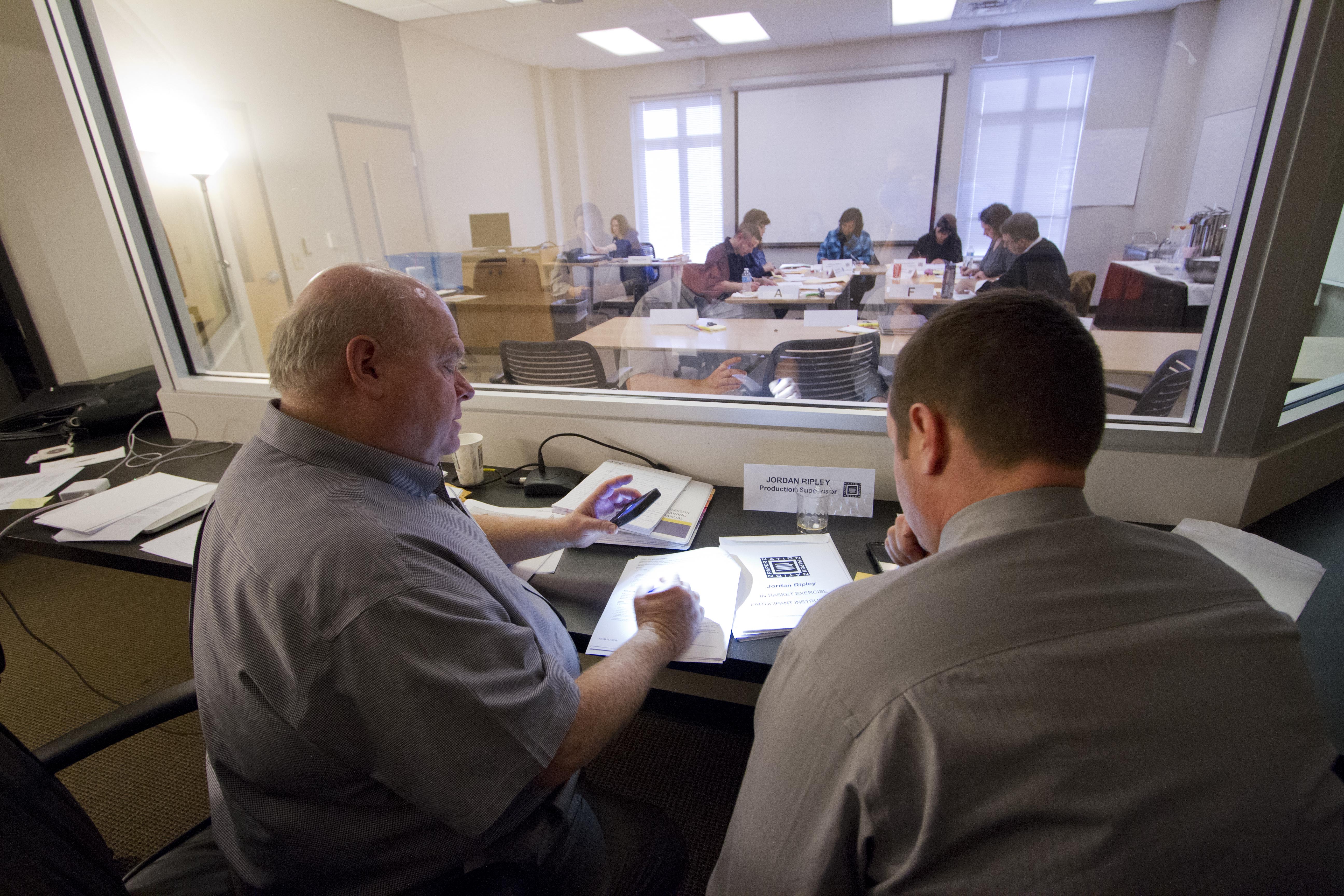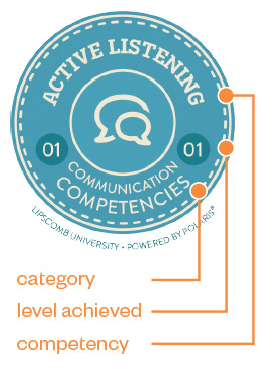
Students participate in a mock-workplace while being observed by instructors at Lipscomb University in Nashville (Kristi Jones/Lipscomb University).
Inside a classroom at Lipscomb University, six students are doing a case study on sexual harassment.
“If a person is a subordinate, you can always make a person do whatever you want to do,” comments one student as they review workplace policies.
This classroom in Nashville looks more like your traditional conference room. All of the students are over 21 and some of them have been sent here by their employers. From behind a one-way window, Doctor Charla Long stares in, observing their work.
"They have to come up in 45 minutes a consensus on these policy issues. And so you start to see how do they work with one another. Are they mean to each other?" Long explained.
Long is dean of the College of Professional Studies at Lipscomb, a small private university. She’s an outspoken advocate for giving working adults college credit for what they know how to do.
“I was in the bathroom the other day and I heard two girls during finals say, ‘I was up all night trying to memorize all of that. I will never ever remember all that again.’ And I’m like, that’s exactly why we do competency-based education,” said Long.
Traditionally, college students earn credit for how many hours they spend in a classroom. But a different approach gives credit based on how much you know -- and know how to do. As the cost of college soars, proponents say competency-based education could save students and employers thousands.

Credit is earned not through grades, but badges in certain skill sets (Courtesy of Lipscomb University).
In Tennessee, corporate clients choose employees to send to Lipscomb and then work with the university to customize their curriculum, focusing on soft skills like communication, relationship building and maintaining eye contact.
“If they can’t do it, they don't graduate,” said Long.
But if students can do it, instead of earning grades -- A's, B's and C's -- they earn badges -- levels 1, 2 and 3. The language may be different but the outcome is the same: a college degree.
Employers are hoping this new model will help cut their overhead. In 2012, U.S. companies spent $164 billion on employee training and development. Some colleges are attempting to pick up part of that tab. From Tennessee to New Hampshire to Washington State, competency-based education is gaining traction.
But not everyone thinks higher education should put so much focus on job training.
"Universities should try to be more forthright about selling what they really believe in instead of telling people what they want to hear,” said Nicholas Lemann, a staff writer for the New Yorker who writes about higher education.
As a former dean, Lemann cautions against developing curriculum purely based on what the job market demands.
“You end up cutting out a lot of what universities do and sending people a message that it's really not important to study things like the humanities and even the social sciences when you're in college," Lemann said. "Which is depriving people who go to college of a lot of the long term benefit of college."
Back in the classroom at Lipscomb, behavioral assessors sit in front of the students listening closely and taking notes nonstop. For eight hours -- a full work day -- they'll watch how the students interact and communicate. Doctor Long says the extended class time is telling.
"You finally see the personality that often happens in a work environment, when your nerves are short," Long says. "You would be stunned."
This model could stun traditional higher education, and Lipscomb is looking to expand. Soon, university administrators hope to offer competency-based education to first-generation Spanish-speaking students.










